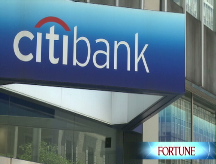A steal on a safe investment
Tax exempt money market funds are offering the highest yields since the 80s, offering a unique opportunity for investors.

NEW YORK (Fortune) -- In one of the more bizarre byproducts of the current financial crisis, yields on tax-exempt money market funds have spiked over the last two weeks, giving investors the unique opportunity to buy safe and, for now, high-yielding short investments.
These funds, which hold short-term municipal debt, now offer an average seven-day annualized yield of 5%. That's the highest average yield since 1985, and roughly three times the current average yield of taxable money markets.
Many funds are offering even higher rates. For example, Vanguard's Pennsylvania Tax-Exempt Money Market fund (VPTXX) is yielding 6.48%, up from 1.8% in early September. Meanwhile, three-month T-bills are yielding less than 1% as investors flock to them for their perceived safety. Treasurys and taxable funds typically yield more than muni funds because investors pay taxes on those gains.
What's going on here? Normally, high yields are warning sign of high risk, but that doesn't seem to be the case now.
"If anything, these yields are really a gift for municipal investors," says Joseph Lynagh, who runs five funds at T. Rowe Price including the Tax-Exempt Money fund (PTEXX), which is yielding 5.16%. "I don't feel like they're representing increased credit risk. They're simply reflecting the dislocations in the market."
To be sure, there is broad concern that if the country enters a recession, state and local governments will see tax revenues decline. That in turn would make them less creditworthy and raise their borrowing costs. But that slightly elevated risk doesn't explain what's going on in munis now. Rather the dramatic jump in yields can be traced back to a chain of destabilizing events in the credit markets.
The latest disruption was set off by the Lehman Brothers' bankruptcy filing on September 15. Investors in money market funds, long considered one of the safest places to stow cash, endured a big shock the next day when one of the oldest and largest money funds, the Reserve's $63 billion Primary Fund, wrote down $785 million of Lehman debt. That move sparked massive withdrawals by investors and forced the fund's net asset value to fall below $1 a share - a rare money-market loss known as "breaking the buck." (The Reserve announced Monday that it will close the Primary Fund and begin returning money to shareholders)
The Primary Fund's losses sparked panic in other corners of the money market fund world, with investors pulling massive amounts of cash out of both taxable and tax-exempt funds. Anticipating a wave of redemptions, fund managers began to sell securities to have cash on hand.
The sell-off had a particularly powerful effect on tax-exempt funds. Combined with the pressure in the credit markets, it forced a sharp rise in rates. That's because muni fund portfolios are dominated by highly liquid securities known as variable rate demand notes (VRDNs) which have regularly resetting rates. When fund managers began to sell, a flood of inventory hit the Wall Street firms and commercial banks that make markets in these securities. Eager to find buyers, the dealer firms raised yields to spur demand.
"Very few on Wall Street are willing to carry this inventory on their balance sheets," says Pamela Tynan, who oversees Vanguard's municipal market funds. "It's a liquidity issue for the firms that remarket these things."
Because of the way these securities are structured, the rates that reset in the marketplace also apply to the notes already in the funds' portfolios. Voila! Tax-exempt funds instantly saw their yields rise.
For the retail investor, this aberration in pricing has created opportunity.
Consider some of the funds in Vanguard's line-up. From Sept. 15 to Sept. 30, the yield of its New Jersey Tax Exempt Money fund (VNJXX) climbed from 1.8% to 4.96%. Other tax exempt funds were yielding above 5%. That's compared to a 1.54% yield for Vanguard's Treasury Money Market fund (VMPXX). Fidelity and other muni funds are offering similarly high yields. ![]()
-
 The retail giant tops the Fortune 500 for the second year in a row. Who else made the list? More
The retail giant tops the Fortune 500 for the second year in a row. Who else made the list? More -
 This group of companies is all about social networking to connect with their customers. More
This group of companies is all about social networking to connect with their customers. More -
 The fight over the cholesterol medication is keeping a generic version from hitting the market. More
The fight over the cholesterol medication is keeping a generic version from hitting the market. More -
 Bin Laden may be dead, but the terrorist group he led doesn't need his money. More
Bin Laden may be dead, but the terrorist group he led doesn't need his money. More -
 U.S. real estate might be a mess, but in other parts of the world, home prices are jumping. More
U.S. real estate might be a mess, but in other parts of the world, home prices are jumping. More -
 Libya's output is a fraction of global production, but it's crucial to the nation's economy. More
Libya's output is a fraction of global production, but it's crucial to the nation's economy. More -
 Once rates start to rise, things could get ugly fast for our neighbors to the north. More
Once rates start to rise, things could get ugly fast for our neighbors to the north. More








